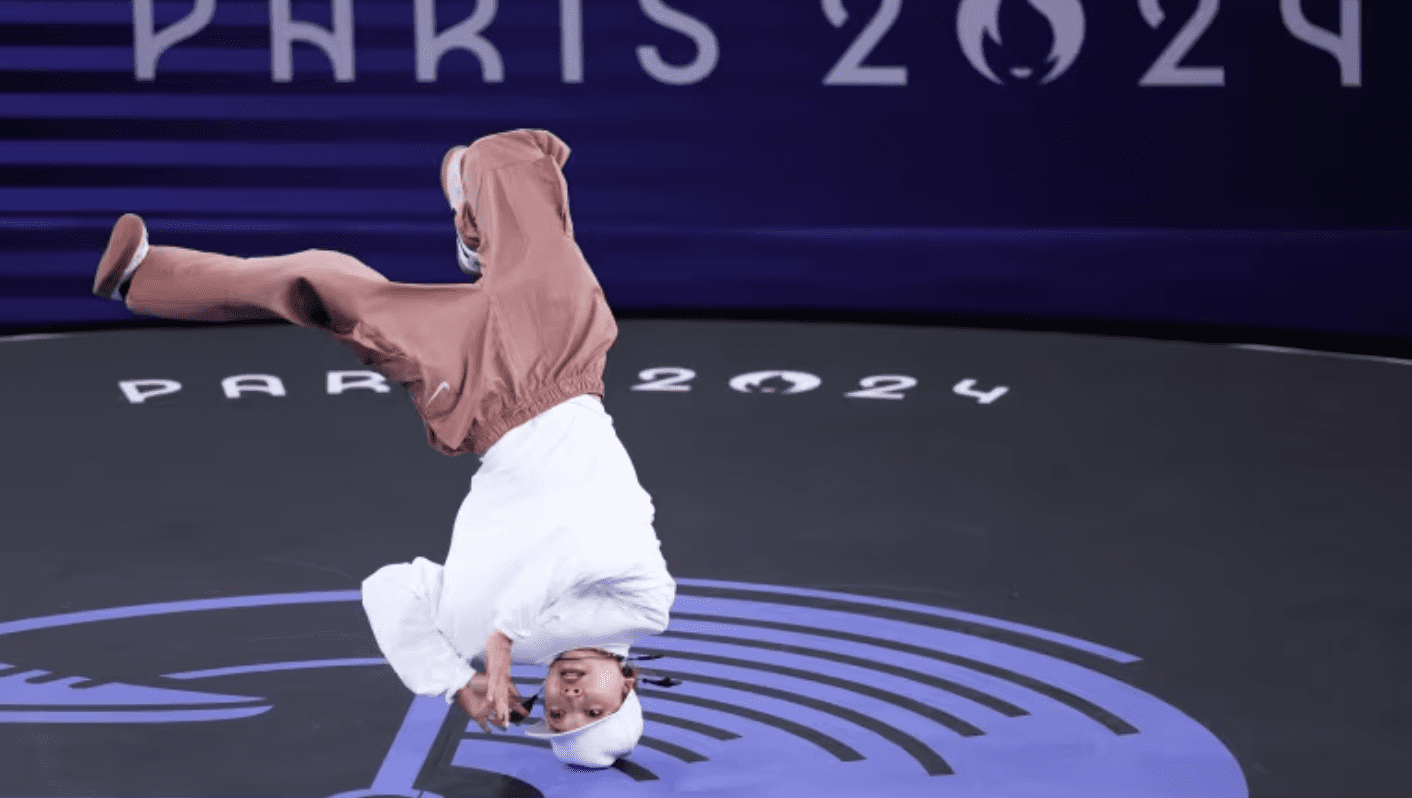The Summer Olympics in Paris, France is over. It remains to be seen whether it will be regarded as a great success or failure. The fate of one new competition at these Games will likely be determined far earlier than this.
This refers to breakdancing – or, as it was called at the Olympics, breaking.
Breakdancing has origins that go back a spell. Early dancing techniques such as the minuet, waltz and the African-inspired Juba or hambone all played small roles. Jazz dance was also a major influence, according to University of Helsinki professor Harri Heinilä. “It has been clear that the ‘Breakdance’ and other Hip Hop-related dances at the very least resemble or even were inherited from earlier African American dances,” the political historian and jazz dance historian/researcher wrote in a 2023 paper, “which have been collectively called jazz dance since this term appeared by 1917 and was established by the end of the 1920s.”
The current form of breakdancing became popular with African-American and Hispanic-American street youth in the 1970s. Dancing, spinning and twirling to hip-hop and rap music expanded in the 1980s and become a competitive industry. There are international breaking or b-boy/b-girl championships held annually in North America, Asia and Europe. Prizes and trophies are awarded. Bragging rights go without saying.
Is breakdancing really a “sport?” I never believed it was – and many others didn’t, either. It’s more of an artistic dance competition that’s fun and can attract crowds. The International Olympic Committee, after receiving a proposal from the World DanceSport Federation, saw things differently and decided to add it to the sports programme on Dec. 7, 2020. Breaking would be introduced at the Paris Olympics in 2024.
Four years of planning went into this competition. There was a big build-up, including the popular rapper Snoop Dogg introducing it to a massive international audience. Within thirty hours, it was all over.
What did they have to show for it? Not a whole lot. While it obviously had some supporters, there were a significant number of critics. Most people had quickly reached the same conclusion in 2024 that others had in 2020. That is, breaking doesn’t fit under the category of “sport.”
Here’s one notable example.
Rachael Gunn, a university lecturer in Australia with a PhD in cultural studies (focused on breaking culture), competed for her country under the nickname “Raygun.” She confirmed that she had received taxpayer subsidies for entering the breaking competition. Although the amount hasn’t been disclosed, the Daily Mail Australia suggested on Aug. 11 that it could be up to $56,000 AUS (about $51,000 CAD) a year in tax-free government funding. This would include “living stipends of up to $35,000 a year, plus an additional top-up scholarship of approximately $21,000 a year.”
End result? Gunn didn’t score a single point in the round-robin stage of the B-Girls breaking competition. “I was never going to beat these girls on what they do best, the dynamic and the power moves, so I wanted to move differently, be artistic and creative,” she said in an Aug. 9 interview with SBS News. “I was always the underdog and wanted to make my mark in a different way.”
That was a bust. Money not well spent, indeed.
Meanwhile, it’s been revealed the 2028 Summer Olympics in Los Angeles won’t have a breaking competition. The news apparently leaked out last October, but didn’t receive much coverage.
That’s a rather fascinating development in itself. Breakdancing’s modern roots was based in major urban cities like Los Angeles. Yet, the local organization committee was already disinterested long before the Olympic breaking competition in Paris began. Could they change their minds? Yes, but it seems unlikely.
Flag football, lacrosse, cricket and squash will become first-time Olympic sports competitions in 2028. The World DanceSport Federation, which was “profoundly disappointed” with breaking’s exclusion, will push for a new competition at the 2032 Summer Games in Brisbane, Australia. Anything is possible, of course, but I strongly doubt they’ll bring it back after such a long absence and largely unenthusiastic response in Paris.
Hence, the non-sport sport could end up being a one-and-done competition.
To be sure, there have been some unusual examples of Olympic events that were held and discontinued. Tug of war was an Olympic medal sport between 1900-1920, and hasn’t returned in over a century. Roque, an American version of croquet, was a medal event in 1904. Jeu de paume, or court tennis, awarded medals in 1908. There were even medals handed out for figure skating and ice hockey at the 1920 Summer Olympics – and yes, you read that correctly.
There’s been a plethora of demonstration sports. Conventional competitions include three types of football – American (1932), Gaelic (1904) and Australian (1956). There was motor racing in 1900, and bowling in 1988. European-style sports like Boules (1900), Glima (1912) and Korfball (1920, 1928) never made it to the big time.
Some events gave out medals which have still never been established by the IOC as official or unofficial. Professional and volunteer firefighters competed in 1900. Angling was contested, with 600 fishermen (mostly from France) participating in six competitions. There was even cannon shooting, and we’ll assume the audience was seated a safe distance away.
Wait, there’s more. Kite flying and ballooning were both held in 1900. Sled dog racing was demonstrated in 1932. Ice stock sport, or Bavarian Curling, appeared in 1936 and 1964. Seven events in 1900 were set up for pigeon racing, as well as a few (unrelated) live pigeon shooting competitions. And, to top it off, competitors for painting, sculpture, music and literature were awarded medals between 1912-1948.
It appears that we’ll be adding breaking to this list. Unless the IOC re-examines the parameters of what a sport is and isn’t – and puts an “isn’t” back into the “is” category.
Michael Taube, a long-time newspaper columnist and political commentator, was a speechwriter for former Canadian prime minister Stephen Harper.






